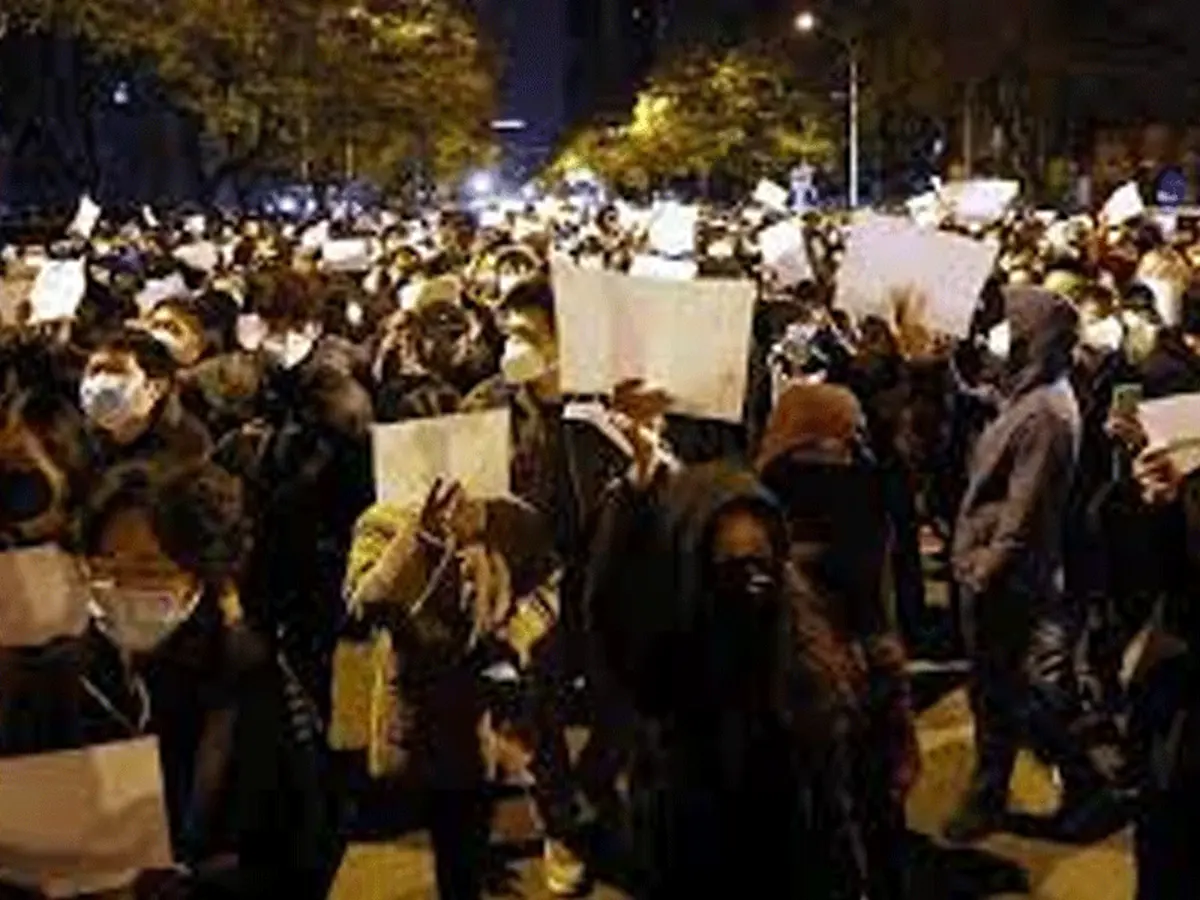Chinese rise up against communist regime’s COVID tyranny in biggest mainland protests since Tiananmen Square massacre
News Joseph MacKinnon November 28, 2022 Photo by Kevin Frayer/Getty Images Like Blaze News? Get the news that matters most delivered directly to your inbox.
Protests against communist Chinese dictator Xi Jinping and his regime’s draconian COVID-19 protocols erupted across China over the weekend in what has been called the “White Paper Revolution.” This uprising is reportedly the biggest since 1989, when the communist regime killed thousands of Chinese in the Tiananmen Square protests.
What are the details?
Mass protests erupted in Shanghai, Beijing, and several other cities across China, condemning the communist regime’s so-called “zero-COVID” policies. Chinese police have reportedly rounded up some protesters, pepper-sprayed thousands, and have altogether attempted to clamp down on the demonstrations in the authoritarian surveillance state.
The Daily Mail reported that over the weekend in Shanghai, protesters demanded that the regime “lift lockdown in Urumqi, lift lockdown for Xinjiang, lift lockdown for all of China!”
Some protesters called for Chinese dictator Xi Jinping — who extended his rule last month — to step down as well as for the CCP to relinquish power, saying, “Xi Jinping! Step down! CCP! Step down!” Don’t miss out on content from Dave Rubin free of big tech censorship. Listen to The Rubin Report now. https://platform.
Several police attempted to disappear one protester in Chongqing, who declared, “Without freedom, I would rather die!”
According to Newsweek, many protesters have taken to the streets holding blank sheets of white paper to both symbolize and denounce the Chinese regime’s censorious nature, earning the movement the name “White Paper Revolution” or the “A4 revolution.”
A video reportedly went viral depicting a woman at the Communication University of Nanjing holding up a blank piece of paper, which another individual then quickly took away.
A translation of one iteration of the post on Twitter stated, “Even if you hold up a blank sheet of paper, it makes them fear. It is not the power of the blank sheet of paper, but the power of awakening. Because, it is precisely because there is nothing written, so everything is written..
CNN previously underscored how open defiance of the regime is “extremely rare,” particularly in a country where dissidents and perceived foes of the state are imprisoned, tortured, enslaved, and in certain cases tossed into concentration camps.
Why and why now?
After three years of COVID-19 policies and decades of murderous authoritarianism, the catalyst for the Chinese protests was a fire and a reimposition of localized lockdowns nationwide.
The new lockdowns reportedly came as a result of a resurgence of COVID-19 infections, with an estimated 40,000 people catching the virus daily (in a country of over 1.4 billion people).
— Leo Lord-Jones (@Leo Lord-Jones) 1669606489
Chinese police also brutalized and arrested BBC journalist Edward Lawrence, who had been reporting on the protests. The BBC indicated that Lawrence “was held for several hours before being released. During his arrest he was beaten and kicked by police.”
The AP reported that in response to the protests, some Chinese authorities had eased certain COVID-19 protocols by Monday, but there was no indication that Beijing would back down on its overarching virus mitigation strategy.
One easement announced was that Beijing’s municipal government would no longer barricade and fence in apartment compounds containing persons who had been infected.
Another easement announced was that mass testing would no longer be required for all residents in Guangzhou.
While Beijing made minor efforts to address protesters’ concerns, bot accounts were weaponized online to hijack the hashtags associated with the White Paper Revolution, flooding Twitter and other social media sites with adult content (i.e., pornographic images, gambling posts, ads for escorts).
Jens Monrad, a cybersecurity analyst, told Newsweek that “using a (trending) hashtag in a spam campaign potentially hides authentic content observed during a protest or event, which can move focus away from a protest or ‘drown’ vital information posted on social media platforms.”
Although Monrad could not confirm that this campaign was state-backed, it would nevertheless be in the CCP’s interest to drown out the protesters’ critiques.
When asked about the anger over the regime’s pandemic policy, foreign ministry spokesman Zhao Lijian said, “What you mentioned does not reflect what actually happened. … We believe that with the leadership of the Communist Party of China, and cooperation and support of the Chinese people, our fight against COVID-19 will be successful.”

